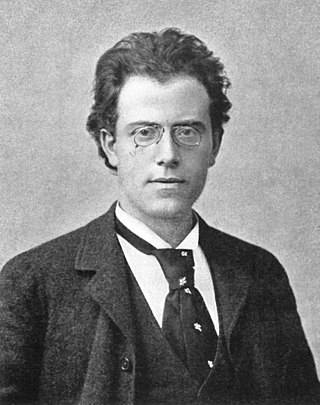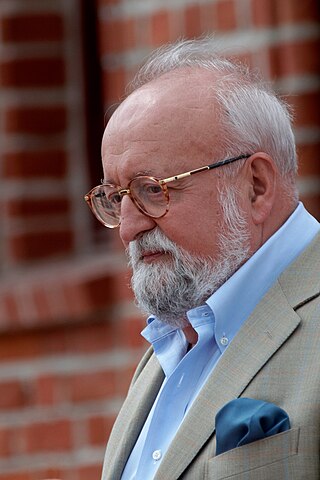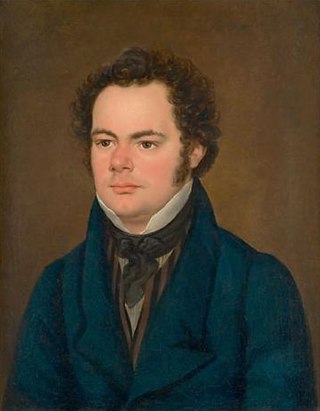
Lieder eines fahrenden Gesellen is a song cycle by Gustav Mahler on his own texts. The cycle of four lieder for medium voice was written around 1884–85 in the wake of Mahler's unhappy love for soprano Johanna Richter, whom he met as the conductor of the opera house in Kassel, Germany, and orchestrated and revised in the 1890s.

Kindertotenlieder is a song cycle (1904) for voice and orchestra by Gustav Mahler. The words of the songs are poems by Friedrich Rückert.

Judith Holfelder-Roy, known by her stage name Judith Holofernes, is a German singer, guitarist, songwriter and author.

Helga Trüpel is a German politician who served as Member of the European Parliament (MEP) from 2004 until 2019. She is a member of the Alliance '90/The Greens, part of the European Green Party.

An die ferne Geliebte, Op. 98, is a composition by Ludwig van Beethoven written in April 1816, setting poetry by Alois Jeitteles.

Ireen Sheer is a German-English singer. She had her first major hit in 1970 with Hey Pleasure Man. She had a top five hit on the German singles chart with "Goodbye Mama" in 1973. She went on to finish fourth at the Eurovision Song Contest 1974 representing Luxembourg, sixth at the Eurovision Song Contest 1978 representing Germany, and thirteenth at the Eurovision Song Contest 1985 representing Luxembourg again.

Wiedehopf im Mai – Sandie Shaw singt auf Deutsch is a compilation album by the British pop singer Sandie Shaw featuring all her German language recordings, many of which are versions of her hits. The album was released in 2004 by EMI.

The Symphony No. 8 "Lieder der Vergänglichkeit" by Krzysztof Penderecki is a choral symphony in twelve relatively short movements set to 19th and early 20th-century German poems. The work was completed and premiered in 2005. The symphony has an approximate duration of 35 minutes. Penderecki revised the symphony in 2007 by adding a few more poem settings and the piece has expanded to around 50 minutes. Although given the designation Symphony No. 8, it was not actually the final symphony Penderecki completed before his death in March 2020; the Sixth Symphony, begun in 2008, was not completed until 2017.

Im Frühling in G major is a Lied by Austrian composer Franz Schubert.
Augustin Pfleger was a German Bohemian composer.

Kassengift is the seventh studio album by German pop duo Rosenstolz, released in 2000 by Polydor Records. The album was the first Rosenstolz album to reach No. 1 in the German albums chart and includes "Amo Vitam", a song sung entirely in Latin that reached the top 20 of the German singles chart.

"Geh aus, mein Herz, und suche Freud" is a summer hymn with a text in German by the theologian Paul Gerhardt, written in 1653. It was first published in the same year in the fifth edition of Johann Crüger's hymnal, Praxis pietatis melica. The hymn was sung to several melodies, with the most popular one composed by August Harder. Later, it became a Volkslied in an abridged version.

"Nun freut euch, lieben Christen g'mein", or “Dear Christians, One and All, Rejoice” in English, is a Lutheran hymn, written in 1523 by Martin Luther. It is one of Luther's early hymns and considered by some as one of his finest. It was published as one of eight songs in 1524 in the first Lutheran hymnal, the Achtliederbuch. The Achtliederbuch contained four songs by Luther, three by Speratus, and one by Justus Jonas. It appeared also in 1524 in the Erfurt Enchiridion.
Bach's first cantata cycle refers to the church cantatas Johann Sebastian Bach composed for the somewhat less than 60 occasions of the liturgical year of his first year as Thomaskantor in Leipzig which required concerted music. That year ran from the first Sunday after Trinity in 1723 to Trinity Sunday of the next year:
"Herzlich tut mich verlangen" is a German hymn, with lyrics written in 1599 by Christoph Knoll, with a melody adapted from a secular song by Hans Leo Hassler. It is a prayer for a blessed death, beginning "Herzlich tut mich verlangen nach einem sel'gen End". Its hymn tune, Zahn No. 5385a, was later also used for Paul Gerhardt's "Befiehl du deine Wege" and "O Haupt voll Blut und Wunden".

Dagmar Enkelmann is a German politician of Die Linke party.

Christa Luft is a German economist and politician of the SED/PDS. Luft joined the SED in 1958. From 18 November 1989 to 18 March 1990, she was the Minister of Economics in the Modrow government. From 1994 to 2002 she was member of the Bundestag for the PDS.

Sarah-Lee Heinrich is a German politician for the German Green Party. She was a federal speaker for the Grüne Jugend from October 2021 to October 2023.

Wolfgang Wieland was a German lawyer and politician. He was a co-founder of the Berlin Alternative Liste (AL), a precursor of the Alliance 90/The Greens. He was a member of the parliament of the city of Berlin from 1987 to 1989 (AL) and from 1991 to 2004.
















